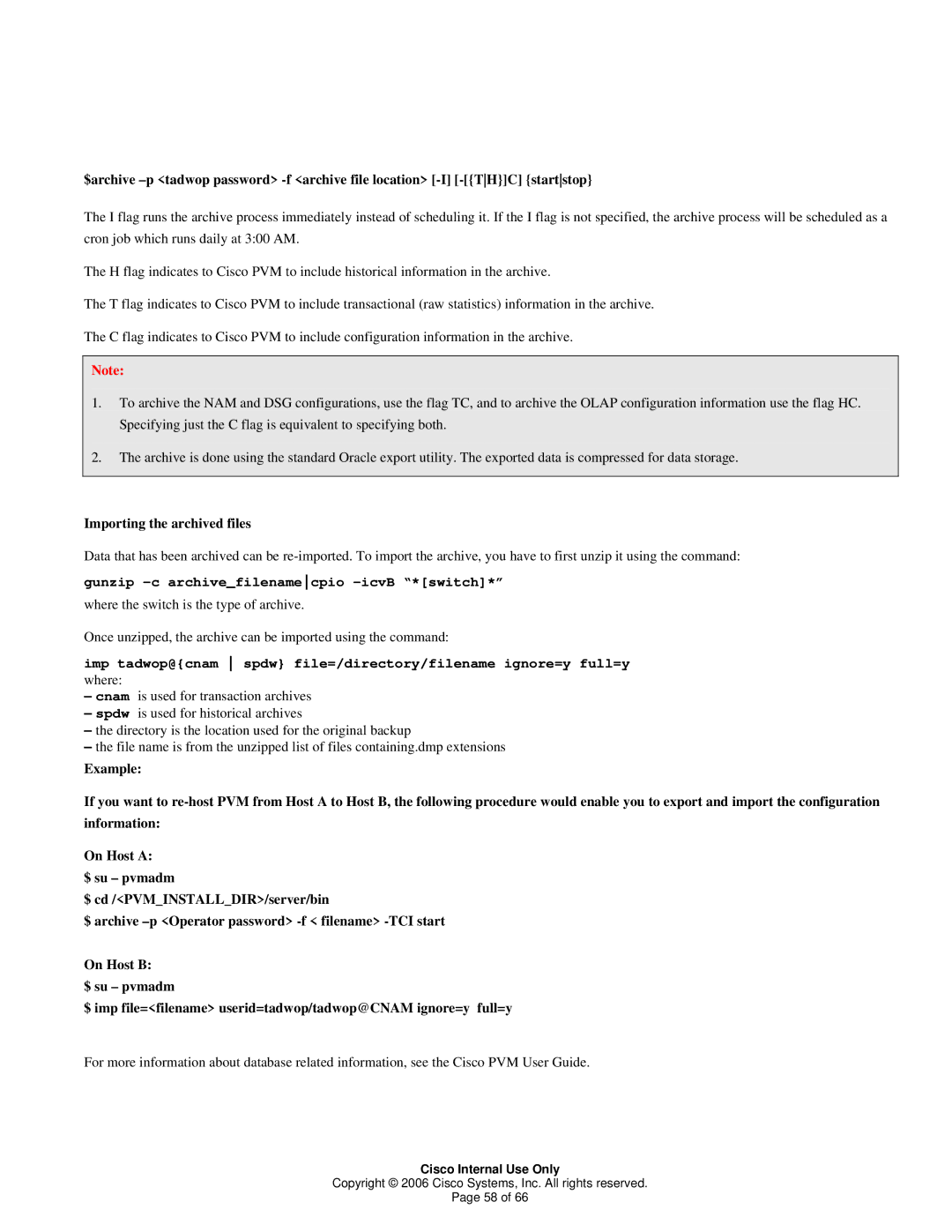
$archive
The I flag runs the archive process immediately instead of scheduling it. If the I flag is not specified, the archive process will be scheduled as a cron job which runs daily at 3:00 AM.
The H flag indicates to Cisco PVM to include historical information in the archive.
The T flag indicates to Cisco PVM to include transactional (raw statistics) information in the archive.
The C flag indicates to Cisco PVM to include configuration information in the archive.
Note:
1.To archive the NAM and DSG configurations, use the flag TC, and to archive the OLAP configuration information use the flag HC. Specifying just the C flag is equivalent to specifying both.
2.The archive is done using the standard Oracle export utility. The exported data is compressed for data storage.
Importing the archived files
Data that has been archived can be
gunzip -c archive_filenamecpio -icvB “*[switch]*”
where the switch is the type of archive.
Once unzipped, the archive can be imported using the command:
imp tadwop@{cnam spdw} file=/directory/filename ignore=y full=y
where:
–cnam is used for transaction archives
–spdw is used for historical archives
–the directory is the location used for the original backup
–the file name is from the unzipped list of files containing.dmp extensions
Example:
If you want to
On Host A:
$ su – pvmadm
$ cd /<PVM_INSTALL_DIR>/server/bin
$ archive
On Host B:
$ su – pvmadm
$ imp file=<filename> userid=tadwop/tadwop@CNAM ignore=y full=y
For more information about database related information, see the Cisco PVM User Guide.
Cisco Internal Use Only
Copyright © 2006 Cisco Systems, Inc. All rights reserved.
Page 58 of 66
